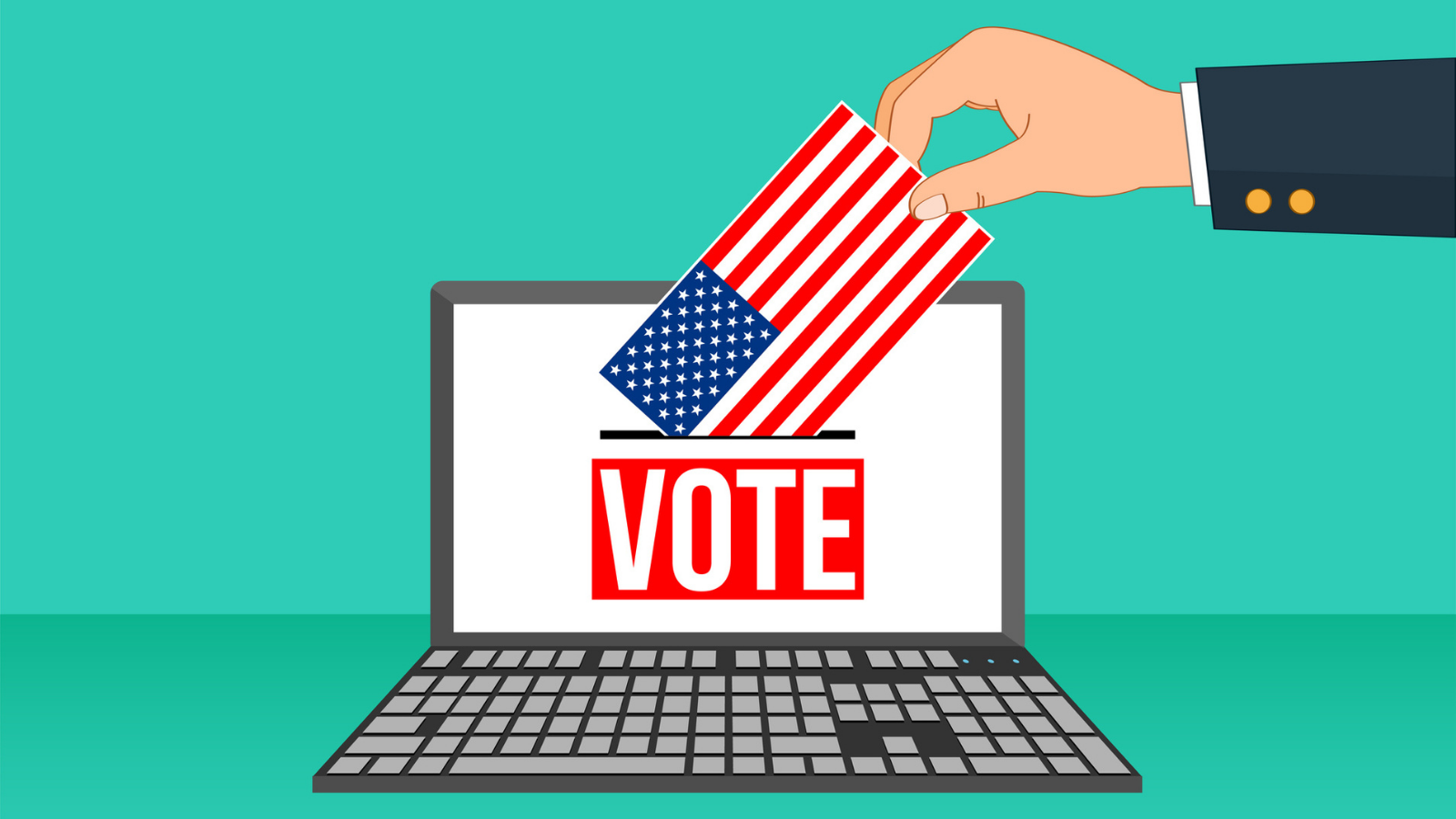The election cycle in America is confusing in the best of years. Factor in pandemic restrictions, the historic nature of this election, and general 2020 chaos, and it is very likely you felt overwhelmed the last few months (well, more overwhelmed).
At the end of this article, there’s some information about how the election cycle works and links to nonpartisan news sites. First, however, possibly more important than what is happening, is how you can interact with what is happening, in ways that maximize participation while supporting your own mental health and wellness. Here is a non-exhaustive list of ways to get involved even if you can’t vote:
Research local candidates. Find out what the issues are in your community and how your state, district, or town legislators are approaching them! This can have more of a direct impact on your life and community than the national elections, and you can make a significant difference in your community.
Talk to older relatives. Maybe they weren’t planning on voting, maybe they don’t understand why you feel it’s so important to vote; in any case, having conversations with your family members can influence them, which may even create a ripple effect in their own communities.
Try phone banking. There’s no age requirement and it’s a fun way to spend a day. You can do it with your friends, and if you hate phone calls (same), there’s also text banking! Here’s a resource to get you started: HOW TO PHONEBANK | RepresentUs
Help register older voters. Sometimes people don’t vote because they’re not sure how, or they’re uncomfortable approaching people for help. You can organize a voter registration drive for your community: How to Organize a Voter Registration Drive – Rock the Vote
Volunteer for a campaign you believe in! You can intern at a campaign office or fundraise, among many other activities.
If you’re an artist, make flyers or visual art for candidates!
If you’re a writer, write an op-ed for a local paper or your school paper!
Utilize social media to spread awareness about issues that are important to you, politicians you admire, and voting deadlines/state regulations.
Write letters to your representatives. This is a fun politicky afternoon you can spend with your friends. Remember that if you don’t speak up about issues that impact you, no one will know that they need to work on changing them. Direct communication with your representatives is a great way to have your voice heard.
Knock on doors. We have the best chance of convincing people of something when we actually interact with them. The one stipulation for this one, though: AFTER COVID PLEASE! Stay safe! Additionally, make sure you do it officially through a campaign HQ because they will help you with preparing what to say and will give you a list of houses to cover. This way you have a safety net if people you speak to are less than friendly.
If you’re a little overwhelmed by all these options, here are some tips for balancing news intake to best support your mental health:
Try to read good news as well. Some sites to check out are Good News Network // Good News – MSN // Good News // comment with your favorites! Manage the time you spend interacting with the news. Set a specific time to check current events and politics and only check headlines x number of times per day.
Filter your social media. Try to limit the number of people who tend to spam politics that you follow on social media. If you feel uncomfortable or stressed out reading political posts, just unfollow! Sometimes social media can be a great asset for information and communication, but your mental health comes first.
Create a balance. Make sure you remember that there’s also a pandemic going on, along with myriad inequalities/injustices and climate disasters; it’s 100% natural to be overwhelmed, but stressing over everything isn’t going to solve the problems. Try to narrow your focus to a few issues that are important and personal to you to reduce the scope of what you worry about daily.
Get your news through a podcast instead of a newspaper or a news channel. You can listen while exercising, which also alleviates stress. The nature of podcasts also means that a time limit is set for you. Additionally, a human telling you about the news will probably add jokes or interesting side points to break up the flow of straight information, and podcasts are often less impersonal and distant than reading an article or listening to a news anchor. You might be able to connect to the issues more this way; just make sure the podcast you choose is run by someone you trust or a trustworthy organization.
As promised, here is an information dump:
The election cycle actually starts almost two years before the next president is inaugurated. Primary candidates for both major parties announce their intention to run for office as early as January (for this cycle, January 2019). There are then primary debates and caucuses, until a candidate is picked, typically at the end of the spring of the election year (June 2020 this year). The candidates are officially nominated at the Democratic National Convention and Republican National Convention in the summer. All of this build-up leads to the first Tuesday in November (November 3rd, 2020): Election Day. Even though it was significantly more complicated this year to count every vote immediately due to the sheer number of mail-in ballots, there are mail-ins and provisional ballots every year, and there are secure systems set in place to handle them. Inauguration Day is January 20, after all the electoral votes have been verified. (Presidential Election Process | USAGov)
What’s the deal with electoral votes anyway? The Electoral College is very controversial, as a candidate could win the popular vote (by millions, even, like Hillary Clinton in 2016), yet lose the presidency because of electoral votes. The Electoral College was a compromise in 1787 between those who wanted to elect the president through a direct popular count and those who wanted just Congress to vote. Each state gets a certain number of electors, calculated by the number of House of Representatives delegates the state receives, plus two for Senate seats. There are 538 electors who vote in December, and a candidate needs 270 to win the presidential election. If no one candidate receives 270, the House picks the president and the Senate picks the vice president.
After all this, the elections are not even over. You might have heard about the runoff elections in Georgia, to decide the remaining 2 Senate seats. Unless Democrats win both of them, Republicans will keep their Senate majority (it’s currently 48:50).
So what are runoffs? Basically, some states don’t allow a candidate to be elected unless they’ve garnered over 50% of the vote. This year, Georgia has 2 seats up for election (Republican incumbents Kelly Loeffler and David Perdue, challenged by Democrats Raphael Warnock and Jon Ossoff, respectively), but none of the candidates got 50% support. Now, in January, a repeat election for these 2 seats will take place. Democrats have not prevailed in most runoffs, especially in a conservative-leaning state like Georgia, but mainly thanks to Stacey Abrams’ efforts, over a million new voters were registered for this election, so the results really will be a toss-up. (What Is a Runoff Election? – FindLaw)
That was a lot of information. If you want to learn more about any of these topics or you’re just looking for a nonpartisan, reliable news source, here are some of those!
FactCheck // The Voter’s Self Defense System // Associated Press // NPR Politics Podcast // POLITICO // Reuters
YOU CAN MAKE A DIFFERENCE! JUST REMEMBER TO TAKE CARE OF YOURSELF FIRST!






